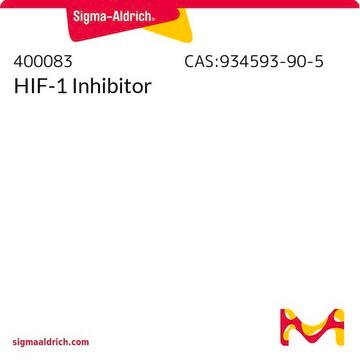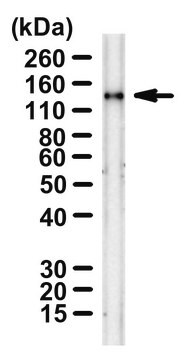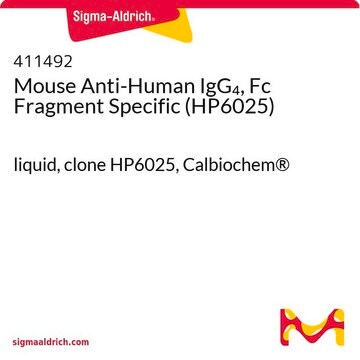400087
HIF-2α Translation Inhibitor
The HIF-2α Translation Inhibitor, also referenced under CAS 882268-69-1, controls the biological activity of HIF-2α. This small molecule/inhibitor is primarily used for Cell Structure applications.
Synonym(s):
HIF-2α Translation Inhibitor, Hypoxia-Inducible Factor-2α Translation Inhibitor, Methyl-3-(2-(cyano(methylsulfonyl)methylene)hydrazino)thiophene-2-carboxylate, HIF Inhibitor II
About This Item
Recommended Products
Quality Level
Assay
≥95% (sum of two isomers)
form
solid
manufacturer/tradename
Calbiochem®
storage condition
OK to freeze
protect from light
color
amber
solubility
DMSO: 5 mg/mL
shipped in
ambient
storage temp.
2-8°C
General description
Packaging
Warning
Reconstitution
Other Notes
Legal Information
Storage Class Code
11 - Combustible Solids
WGK
WGK 3
Flash Point(F)
Not applicable
Flash Point(C)
Not applicable
Regulatory Listings
Regulatory Listings are mainly provided for chemical products. Only limited information can be provided here for non-chemical products. No entry means none of the components are listed. It is the user’s obligation to ensure the safe and legal use of the product.
PDSCL
Deleterious substance
JAN Code
400087-500MG:
400087-MG:
400087-10MG:
Certificates of Analysis (COA)
Search for Certificates of Analysis (COA) by entering the products Lot/Batch Number. Lot and Batch Numbers can be found on a product’s label following the words ‘Lot’ or ‘Batch’.
Already Own This Product?
Find documentation for the products that you have recently purchased in the Document Library.
Our team of scientists has experience in all areas of research including Life Science, Material Science, Chemical Synthesis, Chromatography, Analytical and many others.
Contact Technical Service








